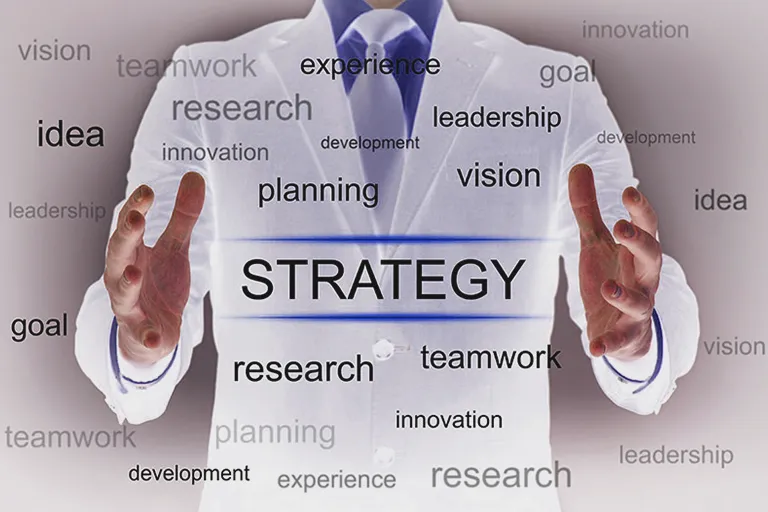To understand the difference between opportunism and creating real value in business, we must define our view on the concept of ” value ” and understand the difference in views, so that we can say that many of our differences are in the difference in our view on the concept of “value”.
Many great management scientists and thinkers have focused on the concept of value in recent decades and have tried to provide a clear and precise definition of this term.
Insisting on defining value and clarifying its concept is not just a theoretical and academic obsession; Rather, it is a necessary issue to operate in the business environment.
Many behaviors and decisions in the workplace, including business model definition , resource management decisions, control system design, advertising strategy selection, and many other activities, depend on how we define value.
Many cases can be found that the difference in defining value and looking at the concept of value creation has determined the success and failure of organizations and businesses.
In this article, we will examine the following three important questions about value.
- Shouldn’t it be better to say that everything is worth what people are willing to pay for it?
- What examples of economic activities can be imagined that are not businesses?
- Why have we put the concept of value next to improving people’s quality of life?
Why does every activity or product not necessarily create value?
Before answering this question, let us review an undeniable fact:
A large number of businesses in the world, which happen to have a good turnover, are not necessarily created to improve the quality of people’s lives; However, they are very successful and have grown well. Perhaps this is the reason why in the past decades, the tradition prevailed that any type of activity that eventually turns into the creation of income and money, is considered a business.
But considering the concept of sustainability (which is a relatively new concern in business management), we come to the conclusion that if businesses do not consider improving people’s quality of life, it will not be easy for them to compete with other businesses. and they face serious challenges.
In the following, I intend to examine some of these problems and challenges.
Note that our verses here are independent of business ethics or philanthropy or other mental concepts and we intend to look at this discussion only from the perspective of dry economic and business logic .
If we consider any kind of money creation and earning to be equal to value creation, we will give good excuses to our competitors.
If we accept the assumption that we are not alone in our business and there are potential and actual competitors in our market, we must also remember that one of the serious defenders of our customers’ rights will be our competitors.
One of the low-cost but effective competitive tools is to be careful and see where your competitors do not consider the interests of customers and only think about their material profit.
Publishing such news can easily change the competitive environment in your favor. It is enough to review with yourself and see how business errors or lack of attention to the demands and expectations of customers have become a tool to improve the competitive position by their competitors:
- The identification of Facebook’s abuse of user information ended up benefiting the competitors of this social network
- The crises that befell Nike for using underage children and other competitors made the most of the news.
- The crisis of the Volkswagen group’s attempt to deceive the pollutant measurement systems, which was accompanied by a large financial loss for the company and an increase in fortunes towards its competitors.
Today’s digital space and people’s access to social networks have made it very cheap and easy to publish this kind of news.
Therefore, even on the assumption of disregarding ethical principles, economic logic dictates that in the process of creating economic value , we should always consider improving the quality of life of customers and their satisfaction. Because even if customers are not aware of their rights, our competitors are ready to make them aware of their rights and harm our market.
Most of the big consumer rights protection movements are not formed by consumers. Essentially, consumers are a highly fragmented community with very little power that cannot easily be held together. Usually, such controversies and movements are formed and supported by competitors of a company who feel that they have contributed more to improving the quality of life of the customer.
What is the difference between opportunism and valueism?
Whenever you can find a position and rely on that position to secure your interests, it can be said that you have used an opportunity. So, based on this, the opportunity is a situation to secure benefits.
As you can see, the term opportunity is very broad and covers many topics including:
- The opportunity to use a rent
- The opportunity to respond to one of the people’s needs
- The opportunity to create an illegal connection
- The opportunity to launch an application with the aim of facilitating and accelerating waste recycling
- The opportunity to take advantage of a legal loophole that provides the basis for corruption
- The opportunity to create a new product
- Opportunity to enter a new market
If someone uses all the available opportunities and every available opportunity to secure his interests, he is called an opportunist .
But a value creator is someone who chooses among the opportunities that create sustainable economic value.
This sustainability is usually ensured when the selected opportunities can help improve the economic ecosystem and improve the quality of life of customers and people in general.
Four tips about business
- First of all, we accept the fact that earning economic profit can be done regardless of improving the quality of people’s lives, and individuals and organizations that have such a view may even experience significant growth at times.
- Business has an important difference from earning economic profit: business is a continuous, long, repetitive and sustainable process of making money and making profit.
- To create a business, we first examine all the available opportunities and then select the ones that can create value from among them .
- Companies that are engaged in numerous and diverse economic transactions, but do not have a permanent process of value production, cannot be called “businesses”. Many companies in Iran and the world are just a trading legal entity and not a business.
An economic activity that is not a business
Suppose one of your friends or relatives works in a big company or organization. The complex plans to purchase CCTV systems for its buildings by inquiring with several suppliers.
Your friend who is active in that company suggests you to correspond with a foreign camera supplier company and get a sales representative from them.
For this, you need to operate as a legal entity. So you will also register a company.
Probably, because of the connections you have within the group, your chances of making a favorable offer and getting it accepted will increase.
What happened here is neither entrepreneurship nor value creation. It is simply an economic activity.
Because your sale has been done in the form of a project and it has ended, and probably no other collection will ask you, and you yourself have no desire to pursue this industry. So, you wait for this friend or another friend to inform you of a new opportunity and you continue your economic activity based on the opportunity.
Why improve the quality of life of others?
Is there anything wrong with improving the quality of our lives in business and management?
This question can be examined from different aspects:
Improving the lives of others can create economic value .
It doesn’t matter what business you are in. But anyway, the survival of your business depends on customers and people in the community giving you money and you making money.
It is obvious that people do not give money to anyone except to improve their quality of life ; Unless we force them or they want to give us charity.
Improving life is not a subjective concept. Rather, it can be measured with objective indicators.
If you open a supermarket and make it easier and faster for the residents of a place to get the goods they need, you have improved their quality of life. Naturally, the customer pays for this quality improvement, and that’s what makes your business profitable .
Several software that help the supplier and the applicant find each other more easily, have improved the quality of life of the parties and saved their resources.
Naturally, part of this quality improvement and value creation returns to the intermediary platform in the form of economic benefits.
So if we say that value creation is associated with improving the quality of life of others , we do not mean a rhetorical or moral discussion. Rather, the simple but important point is that if we do not improve one aspect of other people’s lives, they will not be willing to pay us.
Selfish and self-centered business design
When we talk about selfishness, we generally think of it as a negative and undesirable behavior. On the other hand, when we talk about helping others or improving the quality of life of others, we may feel that such recommendations are outside the dry economic logic of business.
The range of time horizon is very important in choosing solutions to challenges and solving problems. If our time horizon is narrow and limited, securing our own interests and improving the quality of life of others may conflict. To the extent that we feel that each of these is obtained only by sacrificing the other.
But if we consider a wider time horizon, by the way, securing our interests and improving the quality of life of others are aligned and no longer conflict.
That’s why I emphasized that business is meaningful when something is done continuously and over a long time horizon. Otherwise, we are simply dealing with an economic activity and not a business.
Of course, we must also accept that the smarter and more professional the infrastructure and economic processes in a society are designed, the easier it will be to align our interests with the interests of our customers . Otherwise, we may simply not be able to come up with value-creating solutions.
Let us finish this article with a sentence from Will Durant:
The developed world is a world where serving others and improving their quality of life does not require sacrifice and giving up your rights.













